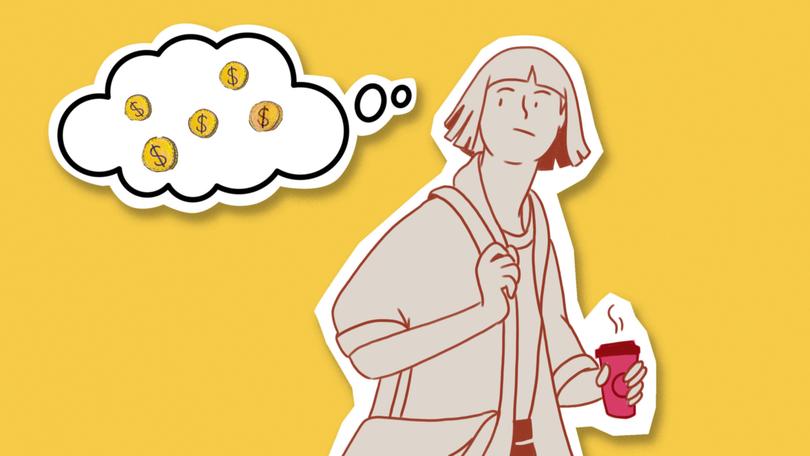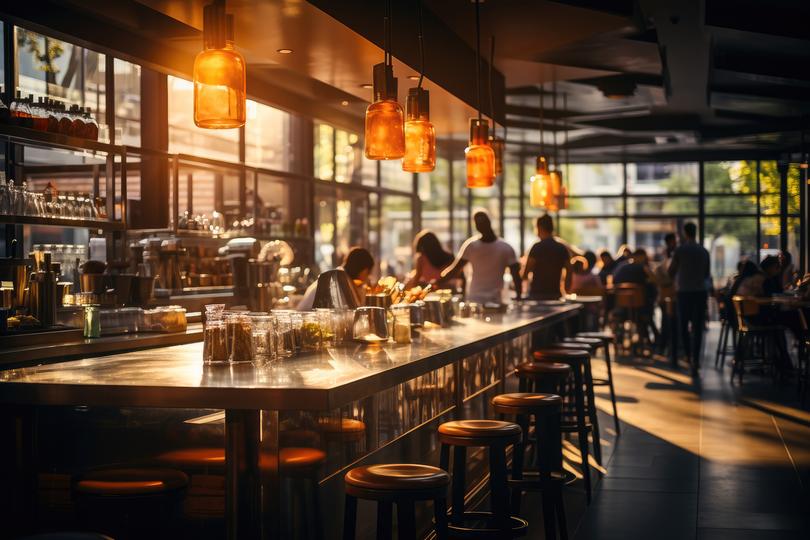GEMMA ACTON: The economic squeeze is driving people to rethink major life decisions
GEMMA ACTON: How I found out the cost-of-living crisis is deeper-seated and wider spread than I had really understood.

The reversal has been abrupt and, for many, thoroughly unnerving. Just a couple of months ago, we were gearing up for the first Reserve Bank interest rate cut to kick in as soon as next month — now we are braced for the next move to most likely be higher.
Borrowers, many of whom are already struggling with paying hundreds or thousands more in interest each month compared to early 2022, are being advised to start thinking of yet another Plan B.
While most believe the Reserve Bank won’t move as soon as next week, traders are positioning themselves for an August hike with chatter about a cash rate that swings above 5 per cent within the next year gathering steam. Several economists now bet the first hike since November will happen as early as next month.
Sign up to The Nightly's newsletters.
Get the first look at the digital newspaper, curated daily stories and breaking headlines delivered to your inbox.
By continuing you agree to our Terms and Privacy Policy.Frustratingly, the items where inflation is proving most intractable — namely, record-high rents and soaring insurance premia — owe much of their stubbornness to a woeful lack of housing supply and climate change — neither of which is quickly remedied with interest rate hikes.
However, there’s clearly enough inflation spread throughout the economy in areas that are more reactive to interest rate settings for the experts to believe raising the cash rate remains an effective tool right now for our central bank.
As someone who covers finance in the media, I am sent dozens of story pitches every day by PR professionals. As you might imagine, the “cost-of-living” crisis is a recurring theme. While I am grateful for these pitches for spurring ideas and offering spokespersons, it’s important to always understand the agenda that’s being pushed.
Last week I wondered whether the cost-of-living crisis is as pervasive and serious as we intimate. We can all fall prey to living in an echo chamber. Sure, we’re certainly feeling it at my household but it’s hard for me to extrapolate the cost shock our family has experienced in the past couple of years with two babies under two years old in full-time daycare from price rises that we would have been experiencing anyway, even if it was just my husband and I still living relatively footloose and fancy-free.
So, I turned to poll a cohort that I thought would provide valuable and honest responses about their cost-of-living experiences — my Instagram community.
I have many deep-seated reservations about social media in general and certain platforms in particular but that does not extend to my community on Instagram. My posts are rather dull updates on life as a suburban mother-of-two and TV presenter so I tend to attract well-intentioned and friendly followers of all ages and different socio-economic realities. The number of respondents to the poll I ended up running on Instagram also far exceeded the sample size of many polls I am sent from PR teams.
My takeaway from the poll is that the cost-of-living crisis is deeper-seated and wider spread than I had really understood.
Furthermore, we’re going to keep pulling back which is going to put pressure on or simply obliterate more small businesses — after we already hit a record-high number of insolvencies in March. Overall, seven in ten said they keep cutting back a little more, despite having already been reining things in gradually for over two years now.

I’m particularly concerned about hospitality, with eight in ten people saying they’re going out less or going somewhere cheaper if they do dine out. This was backed up by chatting to a pub owner at the weekend who said he sees it vividly, with examples like people buying two drinks when they used to regularly buy four on a night out.
Six in ten say they’ve pulled right back on or cut out getting their caffeine hit from cafes, they now make do at home. Trading down is the most popular option for cosmetics and beauty treatments while I found an even split between people either taking shorter, more local holidays or postponing travel altogether for the time being.
Today’s economic realities are also driving people to rethink major life decisions, intimating that many don’t expect everything to soon bounce back to normal. Just over a third of people said they’re not changing their plans for events like getting married or having babies. The same number said that they’re postponing major expenses like these. The remainder said these events are only a “maybe” now due to how much they cost.
There was one pocket of the poll where the responses bucked the trend. A category where fewer than a third of people said they were slicing their spending. That was how much we spent on our furry friends. It was heartwarming to see that we’d rather give up many of our own indulgences to ensure our pets don’t have to change their living standards. Pet products and services could be an interesting cost-of-living-proof market for any would-be entrepreneurs to consider today.
